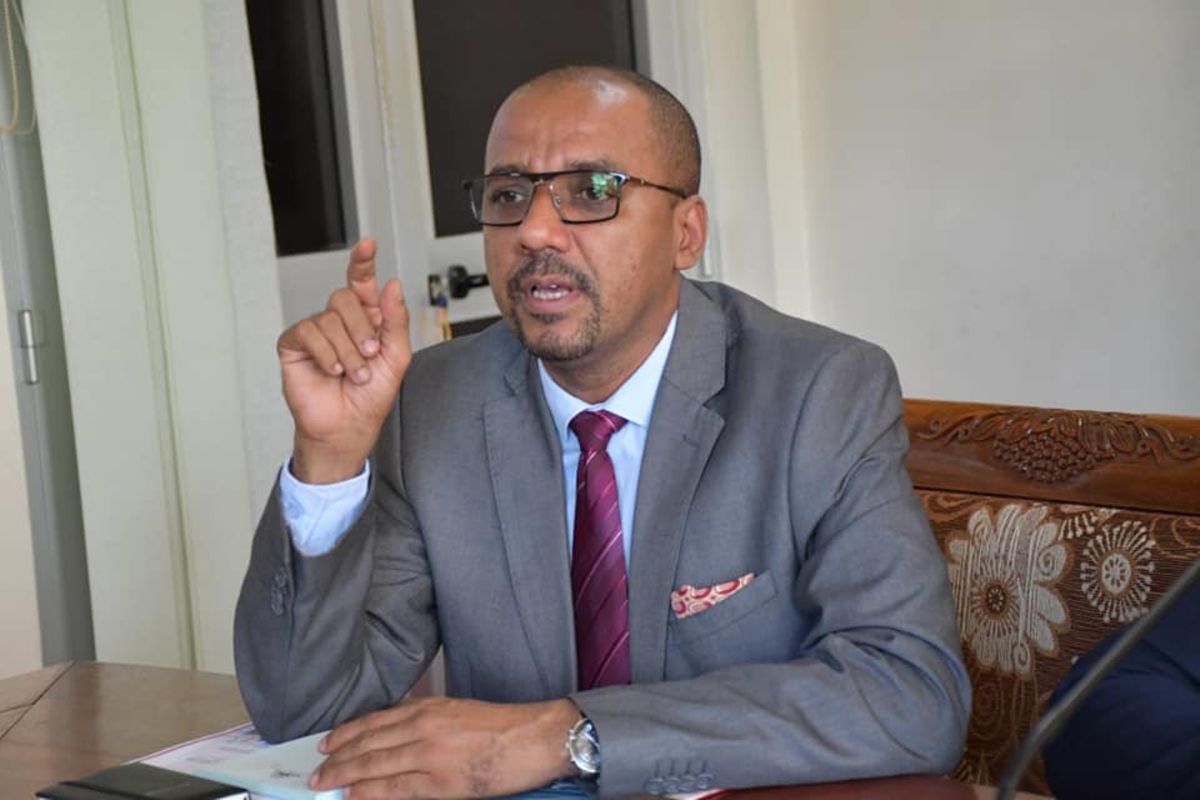
Unguja. The Zanzibar government last Friday April assured international travelers that the Isle is safe and open for business.
Tourism minister Simai Mohamed Said said there had been no reported cases or threats of Marburg virus in Zanzibar, and as such noted that the country was welcoming travelers as usual.
In an official statement, Mr Simai noted that there had been no travel advisory issued against people visiting Zanzibar, while saying all necessary measures are in place to guarantee visitors safety and unrivaled enjoyment of their stay.
The minister noted that there was no single case of the Marburg virus in Zanzibar since it was detected early March 2023, in Kagera region on mainland Tanzania, nearly 1600 kilometres away.
The assurance comes at a time when the tourism sector in Zanzibar is expecting a ‘Green Season’
Since the lifting of Covid-19 restrictions, the archipelago has seen an influx of visitors from the United States of America and the Middle East as well as those from its core European markets. It is anticipated this trend will continue in the coming months and throughout summer.
“While the United Republic of Tanzania and the Revolutionary Government of Zanzibar is monitoring the situation closely, there is absolutely no cause for alarm,” said Tourism Minister Simai M Said.
He added: Given that Covid-19 is still fresh in our minds, we understand that people are cautious when learning of new infections. However, such fears are often unfounded, such is the case now. Tanzania is adhering to the World Health Organisation (WHO) standards and people have no reason to worry.
He called on members of the international business community and those visiting the region and islands to rest assured that it is very much business as usual, and their health is in no way at risk from this virus. In the next few weeks Tanzania should be free from the virus.”
“This is further evidence that the spread of the virus has been halted. As we prepare to welcome our annual influx of visitors from the Northern Hemisphere and the Middle East, they can be safe in the knowledge that the virus is contained and presents no threat to them or the citizens of Zanzibar,” comments Mr. Said.
On his part the Zanzibar Association of Tour Operators (Zato) said the recent travel advisory had issued by the ministry of Health scared away some visitors.
“The statement confused some travelers and others cancelled trips,” said Zato chairperson Hassan Ali Mzee.
He added: The permanent secretary should have consulted us or the Zanzibar government before issuing such a statement which scares away travelers. The advisory is not favourable for us,” Mr Mzee said, adding that the ministers were now allaying fears.
Speaking to The Citizen, the Zanzibar National Chamber of Commerce Industries and Trade chairman Ali Amour said businesses have already started experiencing the effect of the advisory.
“Businesses in the tourism sector have started experiencing cancellations from abroad, other simply because there are airlines that are cancelling flights,” he said.
According to him because the travel advisory by the Ministry of health (Tanzania Mainland) was an internal issue it shouldn’t have been given an international outlook because the affected area was not even a region but a ward.
“It instead scared off people because some travelers can hardly tell the difference,” said Mr Amour.
This comes at a time when Zanzibar’s tourism sector has hit record numbers in the first two months of the year with signs of reaching record numbers.
Zanzibar received 65,430 international visitors in February this year – an increase of 39.2 percent compared to 46,995 visitors recorded in February 2022.
Share this news
This Year’s Most Read News Stories

Zanzibar free from outbreak of Marburg virus
The Zanzibar government has on Friday April 7 assured international travelers that the Isle is safe and open for business.Continue Reading

Tanzania Confirms Second Marburg Outbreak After WHO Chief Visit
Dar es Salaam — Tanzania’s President Samia Suluhu Hassan has declared an outbreak of Marburg virus, confirming a single case in the northwestern region of Kagera after a meeting with WHO director-general Tedros Adhanom Ghebreyesus.
The confirmation follows days of speculation about a possible outbreak in the region, after the WHO reported a number of deaths suspected to be linked to the highly infectious disease.
While Tanzania’s Ministry of Health declared last week that all suspected cases had tested negative for Marburg, the WHO called for additional testing at international reference laboratories.
“We never know when an outbreak might occur in a neighbouring nation. So we ensure infection prevention control assessments at every point of care as routine as a morning greeting at our workplaces.”Amelia Clemence, public health researcher
Subsequent laboratory tests conducted at Kagera’s Kabaile Mobile Laboratory and confirmed in Dar es Salaam identified one positive case, while 25 other suspected cases tested negative, the president told a press conference in Dodoma, in the east of the country today (Monday).
“The epicentre has now shifted to Biharamulo district of Kagera,” she told the press conference, distinguishing this outbreak from the previous one centred in Bukoba district.
Tedros said the WHO would release US$3 million from its emergencies contingency fund to support efforts to contain the outbreak.
Health authorities stepped up surveillance and deployed emergency response teams after the WHO raised the alarm about nine suspected cases in the region, including eight deaths.
The suspected cases displayed symptoms consistent with Marburg infection, including headache, high fever, diarrhoea, and haemorrhagic complications, according to the WHO’s alert to member countries on 14 January. The organisation noted a case fatality rate of 89 per cent among the suspected cases.
“We appreciate the swift attention accorded by the WHO,” Hassan said.
She said her administration immediately investigated the WHO’s alert.
“The government took several measures, including the investigation of suspected individuals and the deployment of emergency response teams,” she added.
Cross-border transmission
The emergence of this case in a region that experienced Tanzania’s first-ever Marburg outbreak in March 2023 has raised concerns about cross-border transmission, particularly following Rwanda’s recent outbreak that infected 66 people and killed 15 before being declared over in December 2024.
The situation is particularly critical given Kagera’s position as a transport hub connecting four East African nations.
Amelia Clemence, a public health researcher working in the region, says constant vigilance is required.
“We never know when an outbreak might occur in a neighbouring nation. So we ensure infection prevention control assessments at every point of care as routine as a morning greeting at our workplaces.”
The Kagera region’s ecosystem, home to fruit bats that serve as natural reservoirs for the Marburg virus, adds another layer of complexity to disease surveillance efforts.
The virus, closely related to Ebola, spreads through contact with bodily fluids and can cause severe haemorrhagic fever.
Transparency urged
Elizabeth Sanga, shadow minister of health for Tanzania’s ACT Wazalendo opposition party, says greater transparency would help guide public health measures.

Sign up for free AllAfrica Newsletters
Get the latest in African news delivered straight to your inbox
“This could have helped to guide those who are traveling to the affected region to be more vigilant and prevent the risk of further spread,” she said.
WHO regional director for Africa Matshidiso Moeti says early notification of investigation outcomes is important.
“We stand ready to support the government in its efforts to investigate and ensure that measures are in place for an effective and rapid response,” she said, noting that existing national capacities built from previous health emergencies could be quickly mobilised.
The situation coincides with leadership changes in Tanzania’s Ministry of Health, with both the chief medical officer and permanent secretary being replaced.
This piece was produced by SciDev.Net’s Sub-Saharan Africa English desk.
Source: allafrica.com

The reason internet speeds in Tanzania still lag behind
Vodacom Tanzania was placed 16th at 17. ’08 Mbps, while Airtel Tanzania was ranked 18th available on 12. 89 Mbps.Continue Reading










